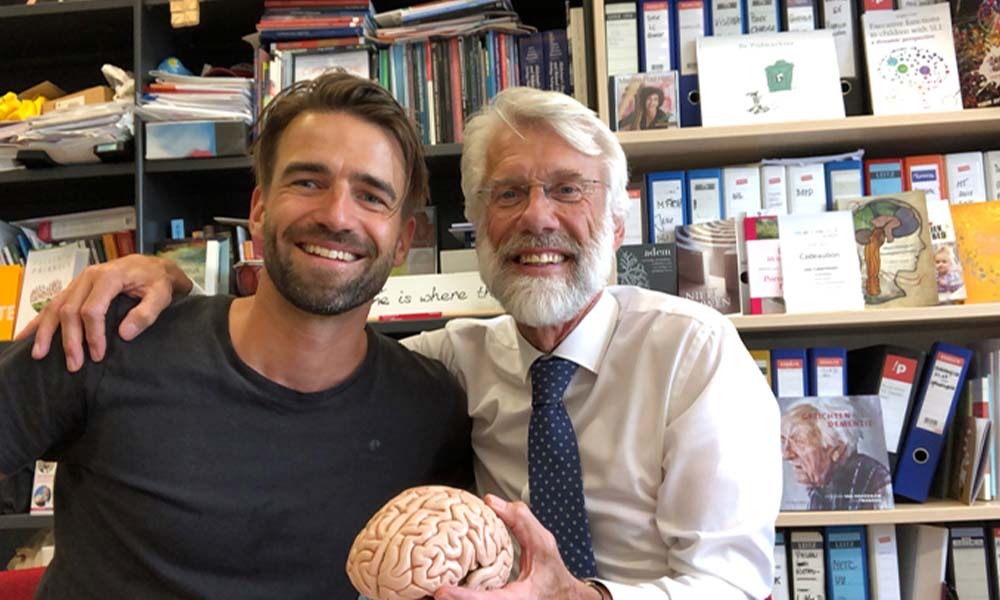Chewing a gum before a workout or exam is helpful, I already knew that. But when I met Erik Scherder at a presentation and we ended up in a conversation afterwards, he pointed out to me the many benefits of chewing. Erik thought I should know exactly how this worked. Of course I couldn't say 'no' to that and so I headed for the VU in Amsterdam, where Scherder is Professor of Clinical Neuropsychology. Our appointment soon resulted in a short mini-lecture on chewing and how our brains work.
Chewing makes you faster and improves your memory
Erik Scherder: ""It's incredibly nice that a lot of studies have already been done on chewing. Actually, chewing is a bit like walking. Your heart rate goes up slightly, which in turn is important for the blood flow to your brain. Your brain consists of gray and white areas that become more active by chewing. The connections between all these brain areas are getting faster, so to speak (Ref 1.). Chewing doesn't make you instantly smarter, but it does make you faster. We say, ""Chew gum and do that 20 minutes before, say, your exam or your workout. Not only will you be faster that way, but your memory function will also improve (Ref 2.).""
Chewing helps reduce stress
""Inside your brain lies the hippocampus. This is essential for your memory and learning new things. Chewing improves the blood flow and function of your brain. The hippocampus in turn inhibits other areas of the brain such as the hypothalamus; the regulatory center that controls your hormonal system.
Suppose you have stress. Stress activates the hypothalamus and makes the stress hormone cortisol via the adrenal glands. Cortisol occupies receptors on the hippocampus causing it to become active and inhibit the hypothalamus. This stops the production of cortisol and reduces stress. So you actually have a self-regulating stress mechanism in your body (Ref 3). How wonderful!
Chewing only works for healthy stress
"But now suppose you have chronic stress, constantly, and every day. The hippocampus can't handle it anymore so the inhibition goes away. You can then have many problems and end up in a negative spiral. The beauty is that chewing leads to activation of the hippocampus and so helps regulate stress well (Ref 4.)."
My conclusion
Chewing gum is good for several health reasons. Not only is it making your memory better and faster, but it also provides stress regulation. Very useful when you have to perform under high pressure! It may all sound a bit complicated, but for me it was genuinely an eye opener. Especially because Erik knows how to explain it so well.
Erik Scherder: ""There is a growing substantiation and evidence that chewing has a positive effect on the functioning of the central nervous system.""
With that message and, of course, immediately chewing a FIRST, I left Erik's room with six research findings under my arm. I have attached the references of those studies in this text and below this blog. Should you like it, feel free to read it.
And don't forget: keep chewing!
Mark Tuitert
Literature References:
(Ref 1.). 'Effects of chewing on cognitive processing speed'. Hirano et Al. 2013.
(Ref 2.). 'A fronto-parietal network for chewing of gum'. Takada, Miyamoto, 2004.
(Ref 3.). 'Association between Mastication, the Hippocampus and the HPA Axis'. Azuma et Al. 2017.
(Ref 4.). 'Gum Chewing Inhibits the Sensory Processing and the Propagation of Stress-Related Information in a Brain Network'. Hongbo Yo et Al. 2013.

